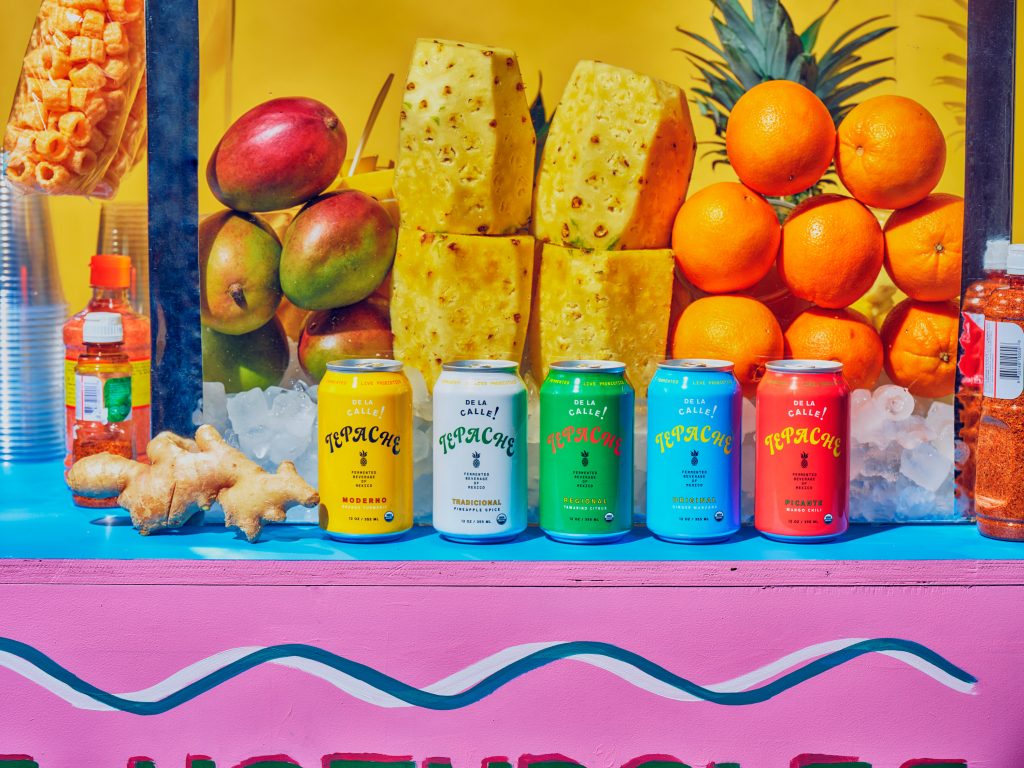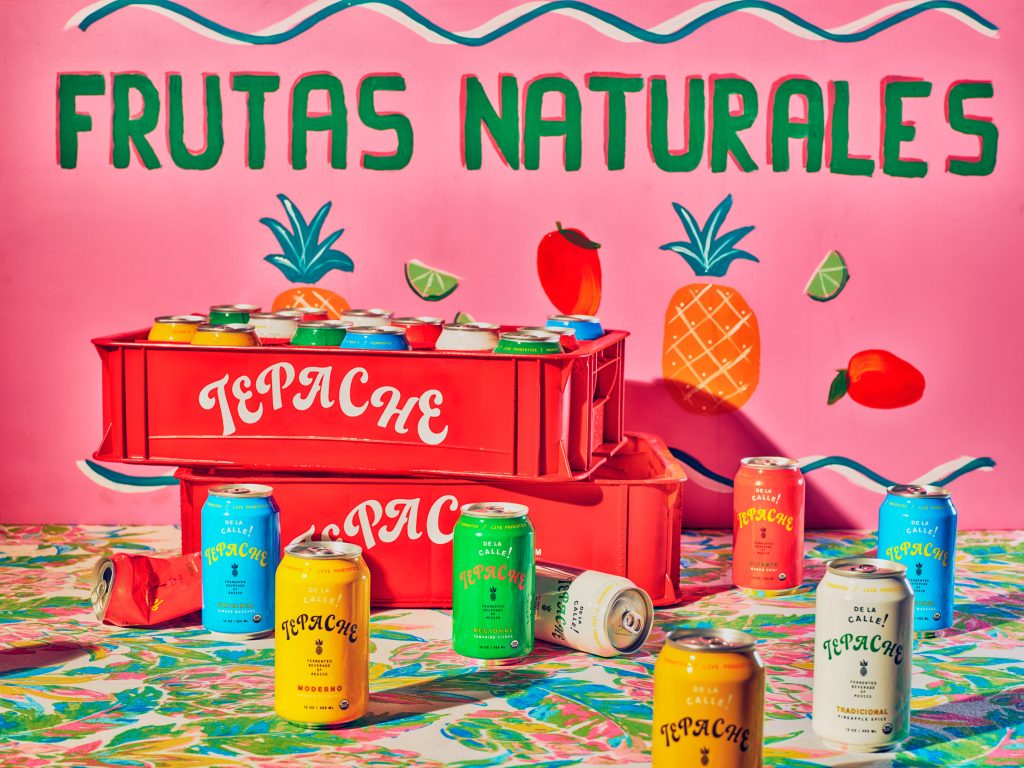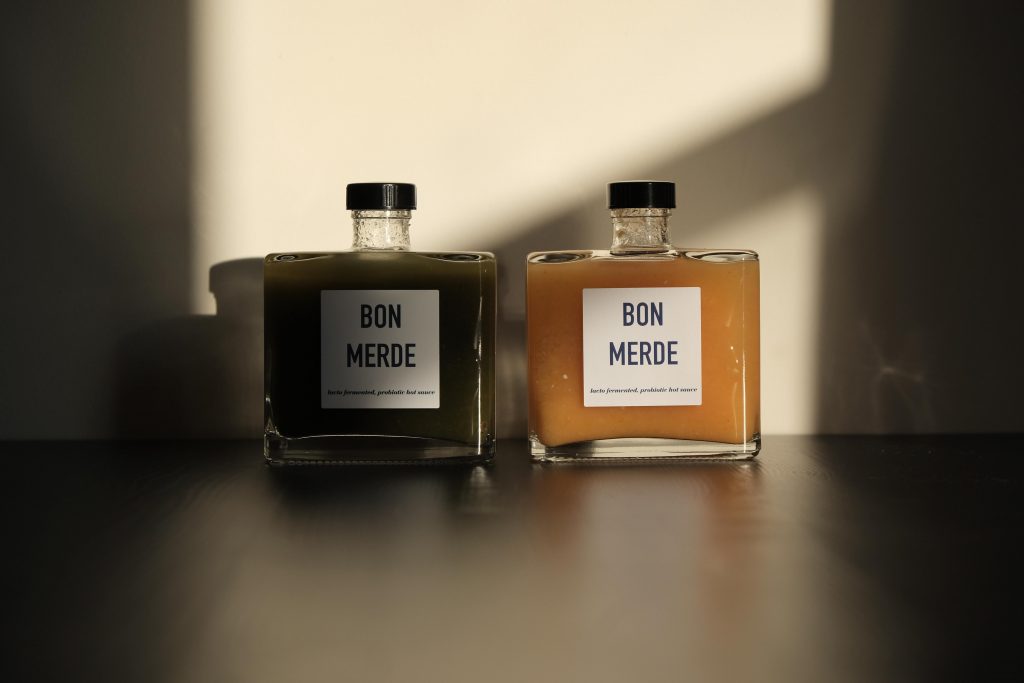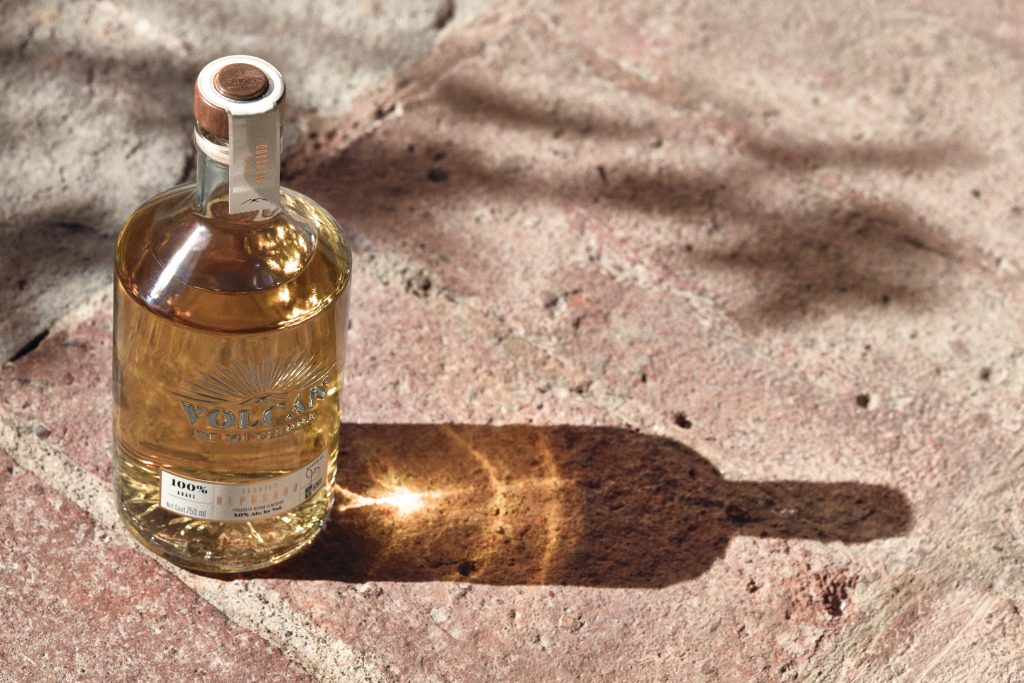De La Calle’s Probiotic + Vitamin-Rich Tepache
A fermented pineapple beverage with roots in pre-Columbian Mexico

De La Calle—a brand born from HERE Studio and RedDecimal, the two agencies behind Kevita kombucha, Forager (a plant-based creamery) and more—produces a modern take on Tepache, a pre-Columbian Mexican beverage made from fermented pineapples, spices and turbinado (sometimes brown) sugar. The fabled formula, passed down through generations dating back to Mayan days, varies from family to family. However, the drink’s benefits remain the same: its production process renders it full of prebiotics and probiotics, few calories and lots of vitamins C and D. Rafael Martin del Campo, the brand’s co-founder and chief of fermentation and R&D, tells us De La Calle boasts all of the qualities of traditional Tepache, but with subtle culinary twists he feels enhance every sip. Plus, their version is certified organic and alcohol-free.

“Tepache originates since before pre-Hispanic times. The word Tepache comes from the Nahuatl word Tepiatl, a conjunction word meaning ‘tender corn and water,’ and the influence of a second word Tepachoa, meaning ‘pressed or ground,'” del Campo explains. “Currently, there are other fermented drinks in which corn is still used, such as Tejuino/Tesgüino (Tescuini in Nahuatl). Therefore, I think the drink originated from both necessity and opportunity. A necessity because corn was the most important staple ingredient for natives of Mesoamerica, and opportunity because when Spaniards came to the ‘new world,’ they introduced pineapples among other fruits, consequently different variations and recipes were developed throughout the years.”

De La Calle’s recipes include Moderno (orange turmeric), Original (ginger manzana), Tradicional (pineapple spice), Picante (mango chili) and Regional (tamarind citrus). Each flavor is delicious on its own and can also serve as a base for cocktails. We particularly like spiking the Picante with a bit of tequila. Further, unlike kombucha, which is fermented and includes prebiotics and probiotic and sometimes alcohol, De La Calle Tepache boasts zero ABV whatsoever. A process during production extracts the alcohol that naturally occurs as part of the fermentation process, while leaving behind a gut-strengthening fermentation byproduct, lactic acid.

Del Campo and co-founder Alex Matthews (founder of HERE Studio, the party responsible for De La Calle’s branding and marketing) are eager to see shoppers’ reactions as their Tepache arrives on shelves nationwide. (They appeared in South California Erewhon and Whole Foods locations earlier this year.) For del Campo, offering Tepache to people in the US has been rewarding, and nostalgic.
“My earliest memories of Tepache were seeing my grandmother making it in claypots and the aromas of fresh pineapple fermentation that surrounded the kitchen,” he says. “Although, Tepache is different from region to region and hasn’t changed much in the last decades. The only latest change now is that you are able to find Tepache in your local store instead of finding it in the streets of Mexico or Tepacherias. This Tepache brings a modern take on traditional recipes.”
De La Calle cans retail for around $3.50 each, or $47 dollars for 12.
Images courtesy of De La Calle












